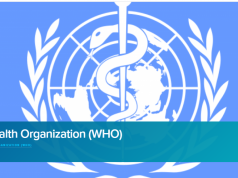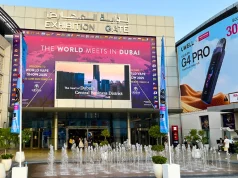A recent article published by the Morocco News reveals that smoking prevalence is increasing in the country. With a gain of 9.8% compared to last year, the new figures of smoking indicate that 13.8 billion cigarettes went up in smoke in 2016, burnt by almost 7 million smokers.
A situation that raises concerns about tobacco consumption
The 2008 amendment of the law on tobacco products although not published in the Official Bulletin, strongly regulates advertisement and bans smoking in public places. However, smoking bans are poorly enforced by the law. In addition, the price of combustible cigarettes remains very low compared to other countries where a gradual increase is applied each year, in agreement with the WHO’s recommendations, to discourage smokers.
A favourable environment for vaping products, though
In contrast, the use of e-cigarettes is permitted in public places and not submitted to any restriction. Importations of nicotine e-liquids and hardware are not regulated and customs do not block foreign products at the border. Nicotine e-liquids are also not regulated but since most products are imported from the European market, they are available on the Moroccan market at the strengths imposed by the EU TPD, with a maximum of 20 mg/ml.
“Currently, there is not law in Morocco that gives a frame to e-cigarettes, national officials do not even know how to place this product” declared the Ministry of Health.
The e-cigarette was positioned as a luxury product in Morocco shortly after its introduction on the national market. Prices of hardware and e-liquids were similar to Europe but the average income in Morocco is approximately a tenth of that in Europe.
An ephemeral situation
The French language facilitated business exchange between the Moroccan and the European markets, especially the French market. Rapidly, French leaders and international companies like E-klop, Clopinette and Cilouette, or Beluga and R-smoke settled in business centres around Casablanca. The strategy adopted by the companies on the emergent market was to educate smokers to e-cigarette in order to build up consumer loyalty. More than twenty vape shops were created within a few months in 2013, 3 years after the e-cigarette appeared in Morocco.
But the economic situation started to degrade very quickly. Mohamed Lahrichi, President of the vaping professionals’ association AMIVAPE (Association Marocaine Interprofessionnelle de la Vape) explained as early as in 2014, at the Vapexpo Paris, that a 70% decrease of this business had been observed. In 2016, the results were disastrous, and most of the vape shops closed doors. The small market is now mostly fed by internet platforms where retail prices are lower than in shops.
The statement is made a posteriori by a French retailer who explains that “After a first phase of discovery of the products, users know what they need and give their preference to new distribution channels”, especially if the different in price is significative. The professional does not discard a scaremongering effect of the media reporting international news with Al Huffington Post Maghreb, for example, playing the same game as the British media, The Sun that is known to show alarming headlines about vaping.
Is a regulation foreseen?
The administrator of a Moroccan e-cigarette forum is reassuring with regard to the regulation of e-cigarette. He remarks that the authorities have issues with high smoking prevalence and contraband, the situation is beneficial to vapers: “It would be surprising to see officials starting to regulate e-cigarettes while combustible tobacco is still a major problem”.
The Moroccan Administration of Customs and Indirect Taxes (ADII) released last week the results of a survey conducted by the agency that shows contraband of tobacco products covered about 7.5% of the domestic market in 2016. This figure, almost half its value in 2014, confirms the effort made by Moroccan customs to fight smugglers. But the high share of this parallel market is also suspected to apply to vaping products that are not subject to border checks. The risk is high for Moroccan customers who may be financially appealed by cheaper products on the black market, at a time when the educating role of retailers becomes weaker.












